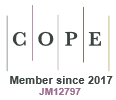Awards and Prizes
The International Journal of Wildland Fire is pleased to announce the launch of the Student Paper Prize, an annual award that recognizes outstanding research by a student author that advances our understanding of wildland fire science. This prize aims to encourage and support the next generation of researchers who are contributing to the field's development through innovative and high-quality research.
Prize Criteria
The Student Paper Prize will be awarded to a paper that demonstrates:
- Scientific Contribution: The paper must make a significant contribution to advancing basic or applied research in wildland fire science, aligning with the scope of the journal.
- Relevance and Impact: The research should offer new insights into the understanding of wildland fire processes, interactions with weather and climate, impacts on ecosystems and society, or effective management strategies.
- Clarity and Rigor: The paper should be clearly written, methodologically sound, and accessible to the diverse readership of the journal, which includes researchers from physical, biological, and social sciences.
Eligibility and Selection Process
- Eligibility: To be eligible for the Award, the publication must comprise original research that represents student work – i.e. research as part of a degree programme, such as honours, MSc or PhD – and must have been published within 2 years of the student completing the degree. The student should have made the primary contribution to the paper. Certification is required from the student's supervisor when requested by the editorial team. The student must be the first author of the paper and will need to identify themselves as eligible for the prize via the ScholarOne Tick-box relevant to this prize.
- Nominations: The editorial board will review all eligible papers and create a shortlist of outstanding submissions based on the prize criteria.
- Evaluation: The shortlisted papers will be evaluated by a dedicated committee of editorial board members, considering the scientific merit, innovation, and potential impact of the research.
- Decision: The winning paper will be selected by a majority vote of the editorial board members. The decision will be based on a thorough assessment of the shortlisted papers.
Announcement: The winner will be announced on the journal’s website and through our social media channels in the first quarter of the following year. This award will be announced for the first time in the first quarter of 2026.
Prize Benefits
The winner of the Student Paper Prize will receive:
- A certificate of recognition from the International Journal of Wildland Fire.
- A spotlight feature on the journal's website.
- A cash award of $1,000 Delegate Pass and Speaking slot at an IAWF affiliated Conference
Associate Editors are critical to a high quality peer-review system. International Journal of Wildland Fire relies on the skill and insights of its Associate Editors to help ensure the relevance and high technical quality of papers we publish. Associate Editors oversee the efficient review of manuscripts in a discrete subject area, and comment both on the scientific quality and novelty of papers to aid the Editors-in-Chief in their decisions.
The Editorial Advisory Committee of International Journal of Wildland Fire is pleased to offer an annual Outstanding Associate Editor Award. This award is offered to Associate Editors who have delivered a sustained and exceptional level of service to the Journal in terms of their responsiveness, thoroughness, and timeliness.
The prize comprises a framed certificate and a book voucher from CSIRO Publishing.
This award will be judged by the Editors-in-Chief.
Winners
2024: Owen Price, University of Wollongong
2023: Andy Hudak (PDF: 787KB), United State Forest Service
2022: David Calkin, United States Forest Service and Hayley Hesseln, University of Saskatchewan
2021: Marc-André Parisien, Canadian Forest Service
2020: Bret Butler, United States Forest Service
2019: Fernando Ojeda, University of Cádiz, Spain
2018: Martin Girardin, Canadian Forest Service, Sainte Foy, QC, Canada
2017: Sarah McCaffrey, USDA Forest Service
2016: Geoff Cary, Australian National University
2015: Don McKenzie, US Forest Service & University of Washington
2014: Nancy French, Michigan Tech Research Institute
2013: Bonnie McFarlane, Natural Resources Canada
2012: Andrew Sullivan, CSIRO Ecosystem Sciences
2011: Douglas J. McRae, Canadian Forest Service
2010: Robert (Bob) Keane, United States Forest Service
2011: William T. Sommers, George Mason University


